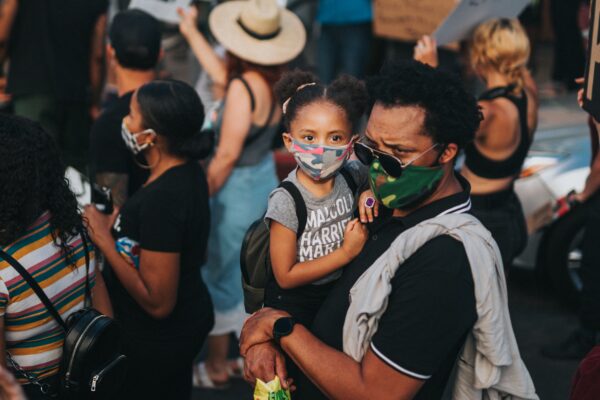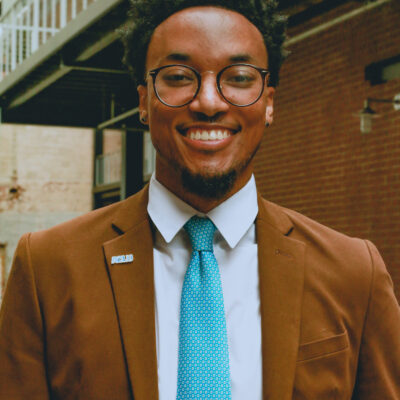Since George Floyd was murdered by Minneapolis police officer Derek Chauvin nearly three weeks ago, the topic of policing in America has surged, once again, to the forefront of our conversation, newsfeeds, and televisions.
This time, it’s coupled with unprecedented protests and rallies across the country, accelerating long-standing efforts of grassroots organizers who long ago abandoned the notion that incremental approaches to combating police violence and brutality disproportionately impacting Black people could be eradicated simply with the help of more training or body cameras. Millions are joining in, and organizers have masterfully continued the tradition of using protests as tool for political education to increase ten-fold the voices calling for a specific demand: #DefundThePolice.
While far from a new concept, defunding the police has never had this much traction, and, in fact, it's already starting. In Los Angeles, Mayor Garcetti announced this week he is committed to slashing $250 million to the police budget. Less than two weeks after George Floyd’s death, nine city council members announced their intent to defund the Minneapolis Police Department.
In other cities, like Greensboro and Durham, North Carolina, community efforts to have more involvement in the annual budgets has led to a participatory model of city budgeting since 2015 and 2019, respectively. And while much work remains to be done, criticisms that calls to divest from policing and reinvest in other community resources are far fetched and unrealistic are now void.
Nevertheless, with the newfound attention on policing, many questions and interpretations have also emerged about what defunding it means and why divesting is a better option than numerous other reforms. The truth is, we have been reforming policing for decades and it hasn’t been enough. The ACLU, among many others, has urged police departments to provide more intensive training, worked to improve use of force policies, and demanded additional accountability measures. These efforts have failed to curb police violence and to address the systemic racism in our policing and criminal justice systems, and we recognize that the current challenges demand bold, new approaches to this decades-old problem.
That is why the ACLU is uniting in solidarity with the Movement for Black Lives to shift our approach to public safety by divesting from policing and reinvesting in communities targeted by police. In Birmingham, last year city officials approved a nearly $93 million budget for the Birmingham Police Department. In Montgomery, the budget allocation for 2020 is nearly $50 million. After the Huntsville City Council approved a budget increase in order to hire additional officers and build a $10 million new training facility, taxpayers saw the return on their investment last week as a militarized Huntsville police force deployed rubber bullets and tear gas into crowds of protesters. Putting more police outfitted in military gear on our streets, in our schools, or even at our protests simply is not the answer to community safety concerns.
Authors of a 2017 study analyzing spending by police departments against police-involved fatalities wrote: “Even controlling for other possible factors in police violence (such as household income, overall and black population, violent-crime levels and drug use), more-militarized law enforcement agencies were associated with more civilians killed each year by police. When a county goes from receiving no military equipment to $2,539,767 worth (the largest figure that went to one agency in our data), more than twice as many civilians are likely to die in that county the following year.”
Allocations to the state and local police have continuously soared to total over $100 billion dollars annually, and absorb an overwhelming share of local funds. We need to cut this senseless spending on policing that is far from a guarantee of safety for Black people and turn our attention immediately toward models that are best equipped to meet our community needs. That means:
- Challenging the traditional notion of public safety being centered on law enforcement and instead directly meeting the needs of those in our community with more specialized, acute services and professionals trained to specifically administer care and treatment
- Calling on local and state officials to stop accepting excess military equipment, including weapons and vehicles, from the Department of Defense 1033 program, and demand that Congress finally end the program.
- Sending a message to your Alabama Mayor and demanding that they reign in police power and allow protests to continue without the intervention of police and use of excessive force
- Urging local officials to immediately remove police from schools and replace them with social workers, counselors, and nurses
- Prohibiting police from enforcing a range of non-serious offenses and eliminating many of the unnecessary interactions between the police and community members that have led to so much violence and so many deaths
There are also a range of resources and platforms we’re sharing at the end of this blog that have been crafted by activists who have persisted through decades of underinvestment in everything except police, racist policies, and their related punitive programs, all of which drive the mass incarceration crisis. Looking to their leadership at this moment will be important for our organization as we seek solutions that ultimately protect our Black lives, not further harm them, and work toward a bold new vision of community safety.
We won’t be distracted by the commitments to platforms such as “8 Can’t Wait” that include tried and failed policies and do little to address the systemic impacts of policing on Black communities. We are committed to significantly reducing the role, responsibilities, and presence of police in the everyday lives of communities that have historically been and continue to be heavily policed and surveilled. For George Floyd, Breonna Taylor, Tony McDade, and the countless names that we may never know, we ask that you join us.


